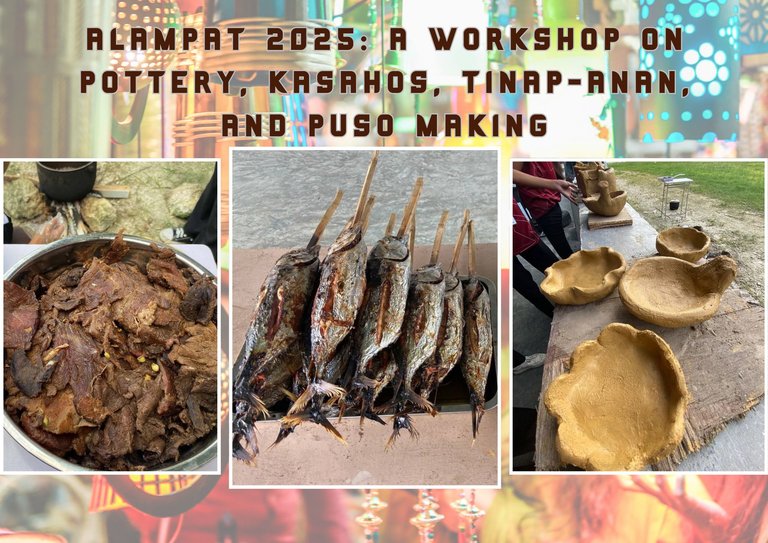
Sunshine and smiles, Hivers! I am back again for another blog for this week! I am happy to share with you all about what happened yesterday's event. This event is so meaningful to the locals here at Danao City, wherein this workshop is about making and preserving the dying culture here in Danao City. Let's get started!
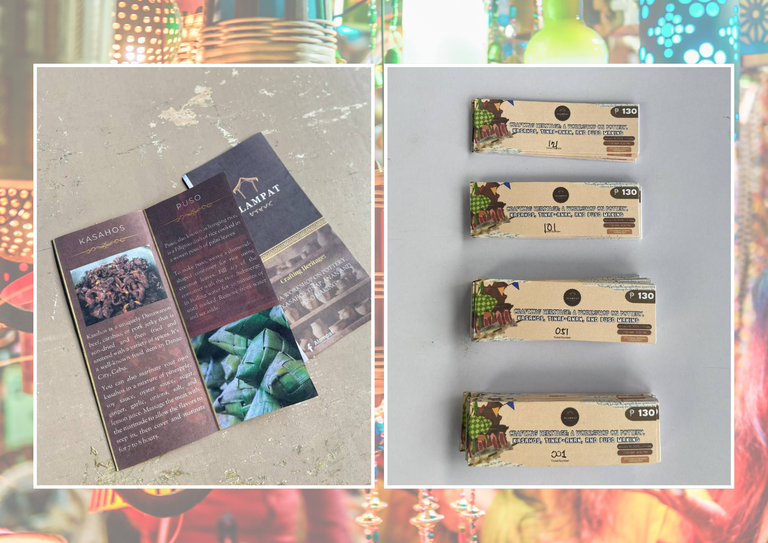
Yesterday, we conducted a workshop at our school called Alampat. Alampat is a Bisaya term that signifies art, product of human creativity. This workshop aimed to instruct participants on preparing the delicacies of Danao City. The artisans who create these delicacies are becoming increasingly rare, and this cultural practice is at risk of fading away, so we involved students from CTU Danao Campus to educate them on how to make these delicacies of our locality and culture for future generations.
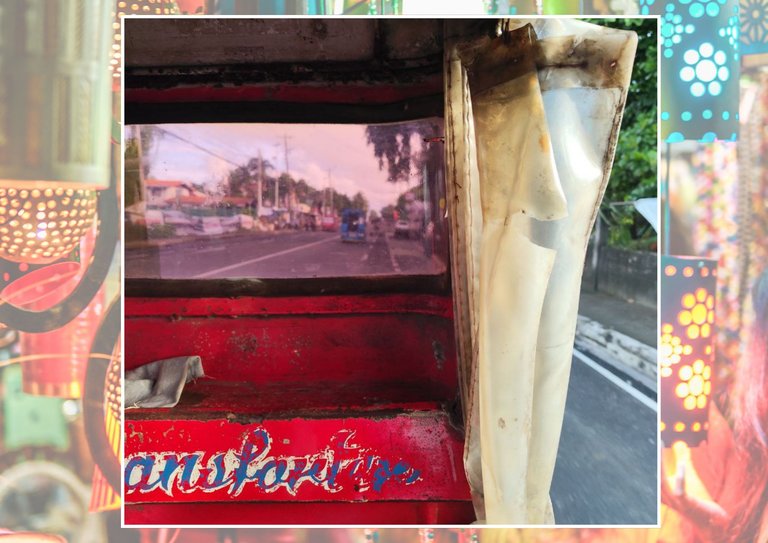
Here I am, taking a tricycle to school at 6am because the event starts at 7am. When I arrived, some of my classmates were already tired since they had been at school by 4am and preparing for the event.
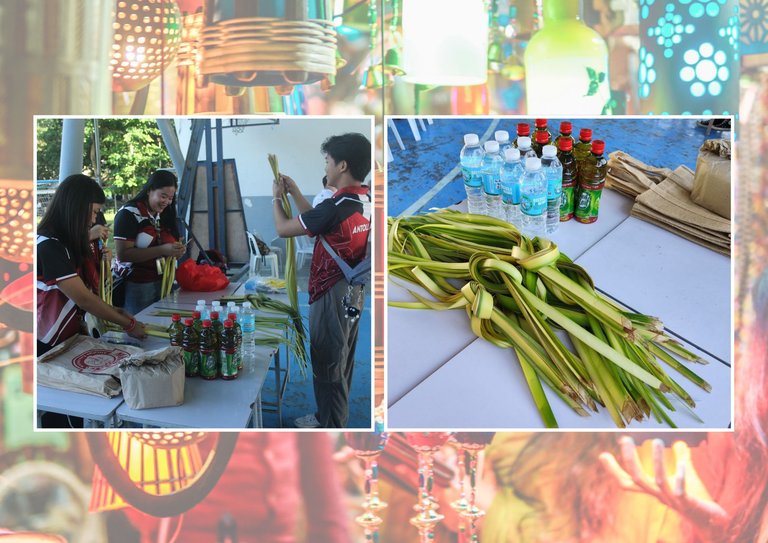
I help my friend in organizing the materials needed for the event as I didn’t have any task left because I was assigned in multimedia and my work was completed before the event began.
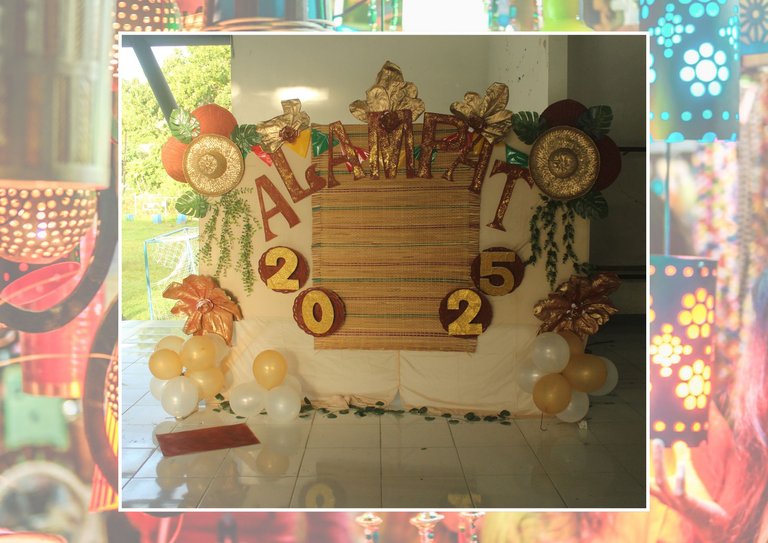
We also offer a photobooth for those who wants to take a photo during our event. This photobooth was created by the BSBA students.
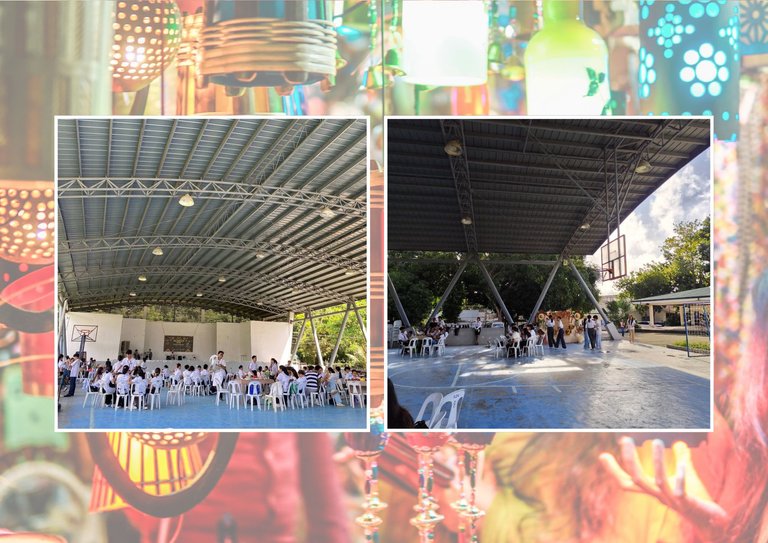
This is our setup for the event. It was a plain and simple setup since the primary focus of this event is the workshop, not the overall design.
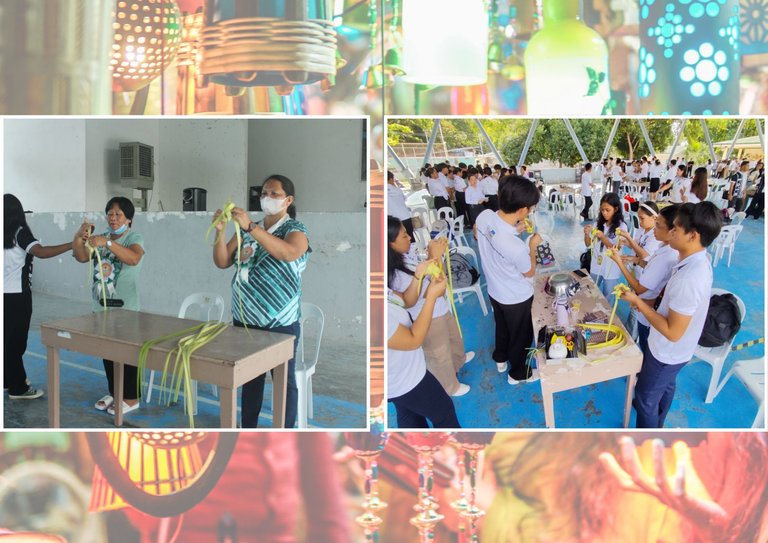
The first workshop that was conducted was about making puso. In Cebu City, where I live, puso is a hanging rice wrapped in woven coconut leaves, and it’s a part of our culture. This represents an important aspect of our culture here in Cebu. One of the local artisans demonstrated the process of creating hanging rice (puso) while the students watched and tried their hands at it as well. The demonstration and practice session lasted around 30 minutes since we were short on time, with three more workshops scheduled for that day.
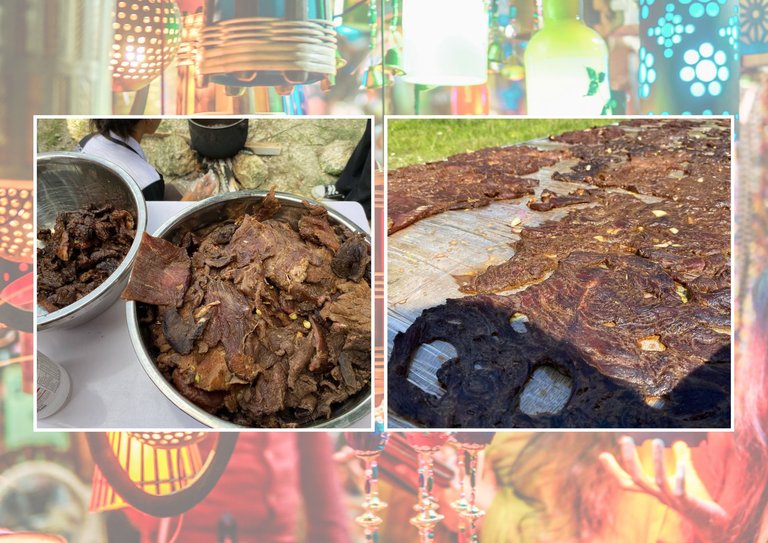
After we finish making puso, we move on to preparing kasahos. Kasahos is a popular delicacy in Danao City and one of our cultural treasures that requires preservation, as Danao City is well-known for this dish. Various types of meat can be used to create kasahos, including pork, beef, carabao meat, and cow meat. The carabao meat is the primary ingredient of the kasahos. Kasahos is like a beef jerky but the method of preparing kasahos is quite different from that of making beef jerky.
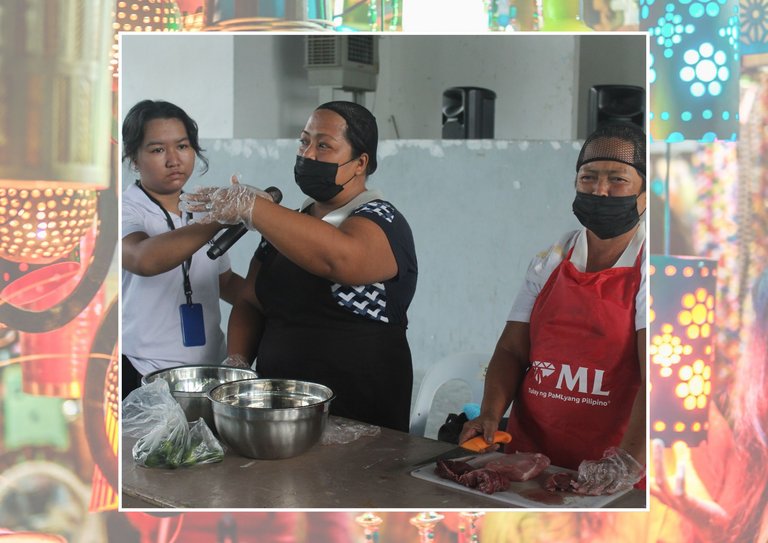
We invited one of the remaining kasahos makers from Danao City to demonstrate the process. They began showing us how to prepare kasahos, with the students following along.
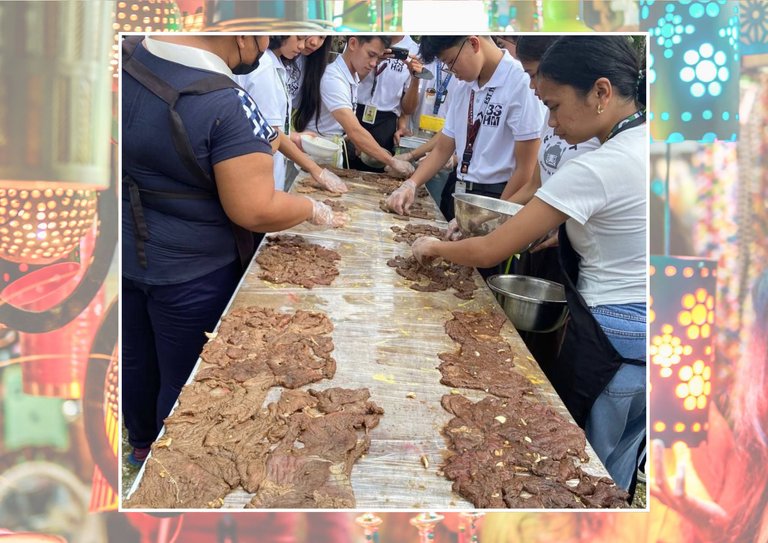
After marinating the meat, they spread it out on a table to dry it in the sun, which is important steps in the kasahos-making process; the meat must remain under the sun until it becomes completely dried. Once dried, the meat can either be fried or barbecued.
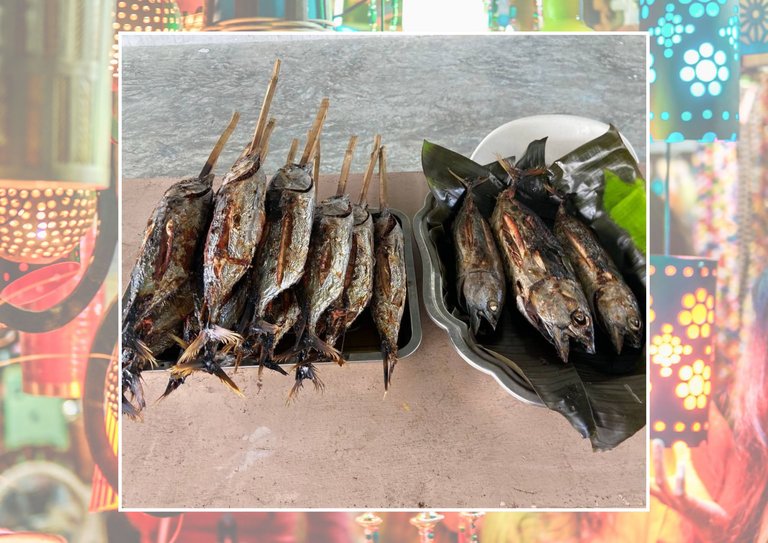
After preparing the kasahos, we proceeded to the next workshop, which focused on making tinap-anan. Tinap-anan, or smoked grilled fish, is a dish that involves pricking the fish onto a bamboo stick. This delicacy is a significant part of the rich culture of Danao City. The dish is well-known in Danao City, as many locals were primary source of income is fishing.
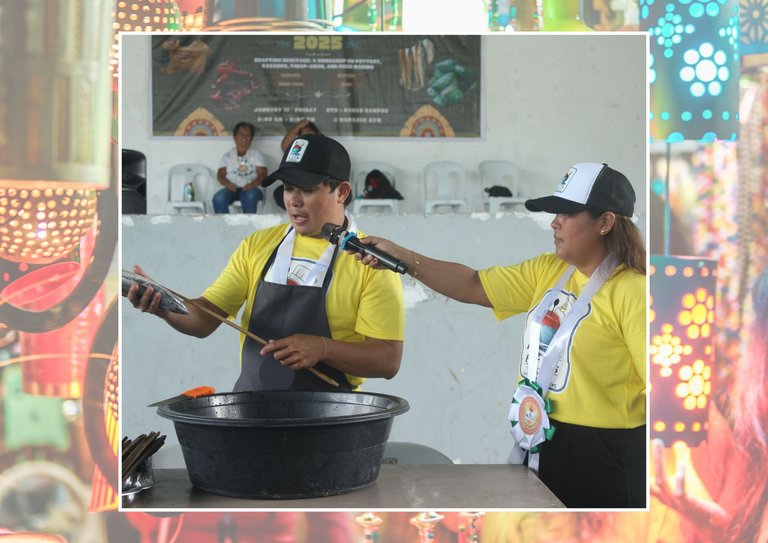
One of the speakers was demonstrating how to prepare tinap-anan. The students selected a representative to do the tinap-anan.
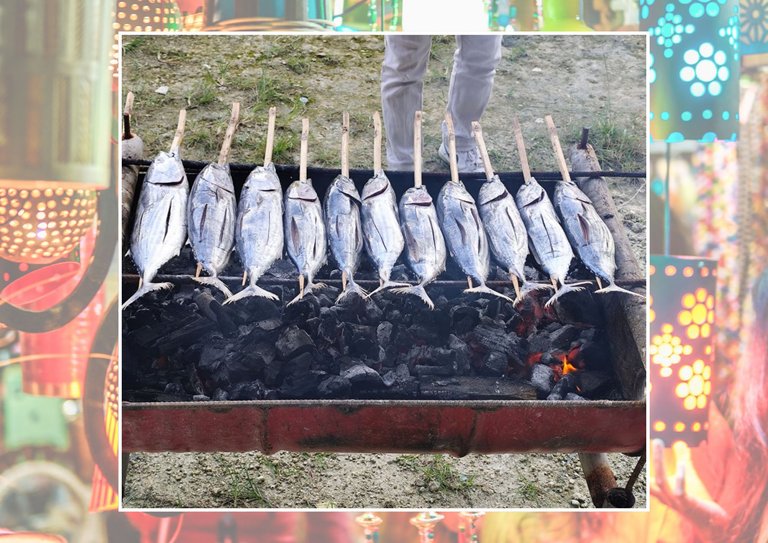
After the demonstration, they began placing the fish in the griller to cook. We simply waited for the hanging rice, kasahos, and tinap-anan to be finished so we could enjoy our lunch.
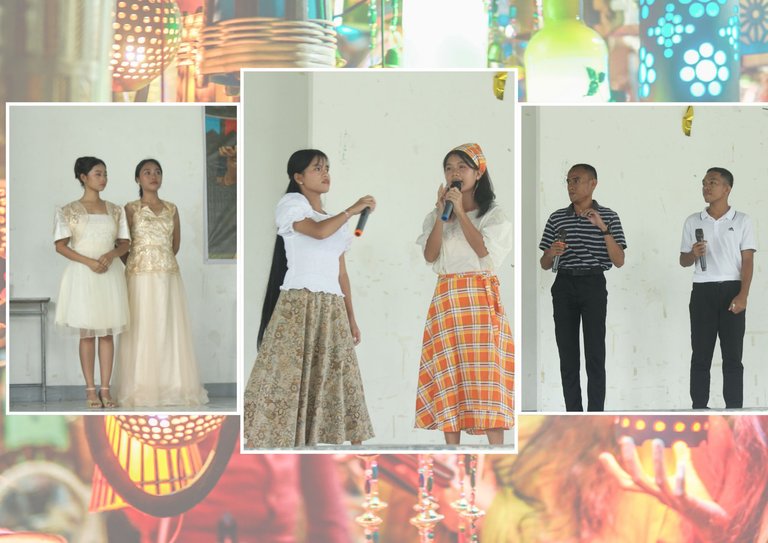
Some students sing during the event. As you can see in the picture, these students are very talented and show off their talents in front of people. They song Filipino songs.
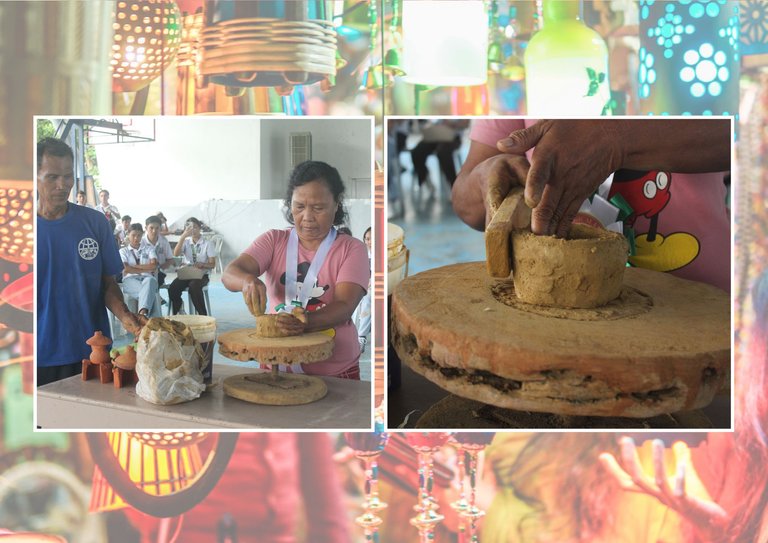
Adter lunch, we began the final workshop of the day, focused on pottery. Pottery is very important in our place and has a big aspect of our culture here in Danao, and the speaker we invited for the demonstration is a local known for his pottery skills.
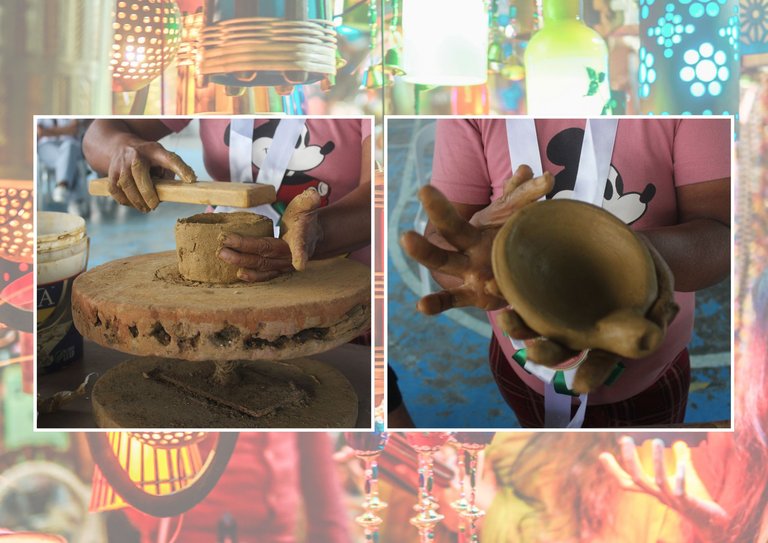

In the picture, you can see the speaker in the center as he demonstrates how to create a "sug angan" (stove) and a mini pan with a lid. The students had the chance to try making sug angan and molding the clay using their hands, and they were very happy and enjoyed the process.
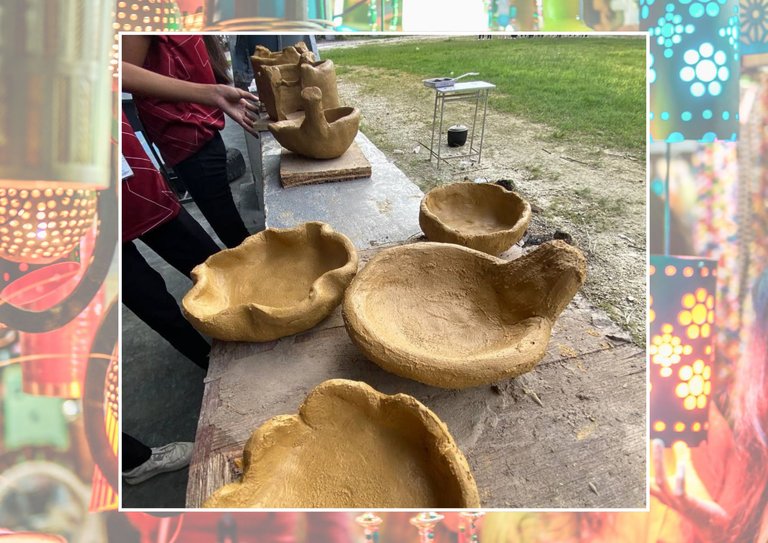
Afterward, they placed their finished products under the sun to dry and harden.
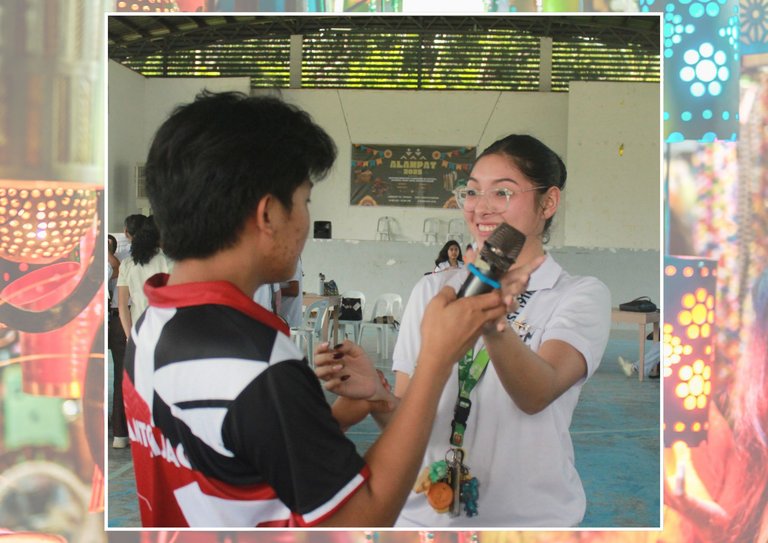
After completing the pottery making session, we began interviewing some of the students who participated in our workshop to gather their thoughts and feedback about the event. Overall, their responses were outstanding and genuinely positive, as they truly enjoyed the workshop.
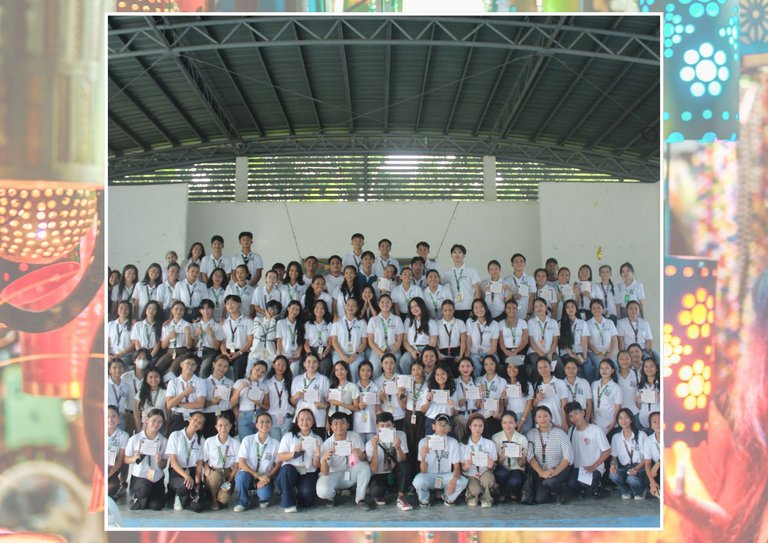
Here are the pictures of the students who took part in our event.
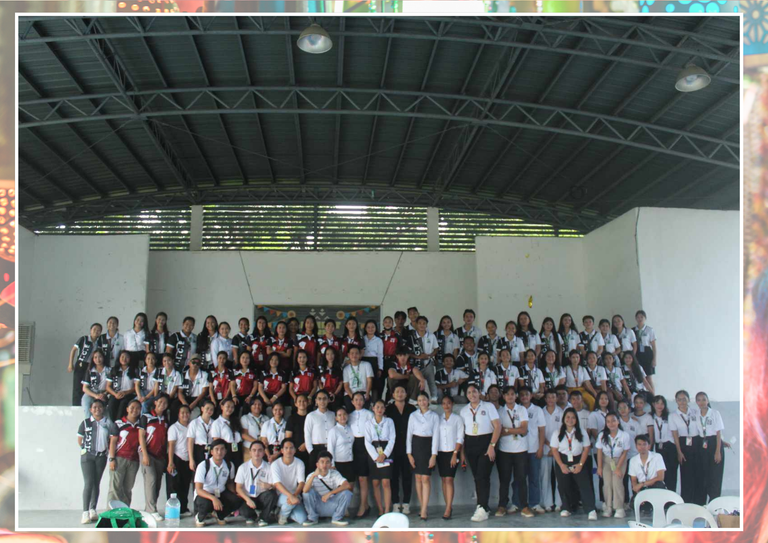
We also take a picture of the committees behind it, the BSHM 3A, 3B, and 3C sections. These sections will not be successful without them.
We are thankful that this event was over and that we made the event run smoothly, with no technical issues or problems encountered. This event has a big help contributing to preserving the fading culture in our area by teaching the younger generation the importance of cultural preservation, ensuring that these culture will be carried on into the future. We are grateful to our professor for assigning us this final project focused on maintaining the cultural heritage of our locality. Although it was very tiring and exhausting, it was absolutely worth it.
After the event, we began cleaning the area and arranging the chairs to send back to Centrum. We just help each other clean the area to make it easier.
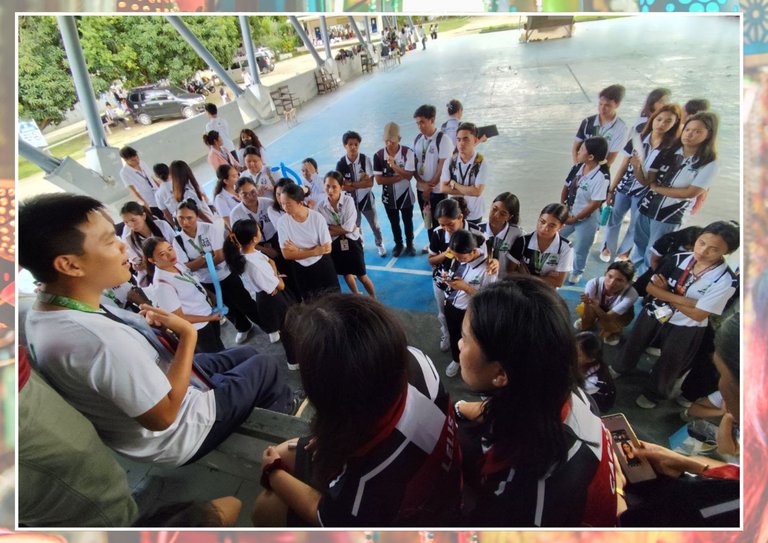
Before we say goodbyes to each other, the head of the event gives us some certificates and recognition about the event. They told us about the success of our event and how we cooperated during the event.
And that's the end of my blog for today, Hivers! I hope all of you have gained knowledge into the rich culture of our place. Aside from being known to numerous tourist attractions, we are also thankful that we havea diverse culinary heritage. This cuisine holds a big meaning for our community, and without the participants who join our workshop, this event would not be successful. Thank you very much for taking the time to read my blog, and see you in my next blog. Ciao!
Wow! How beautiful 😍 each step and each activity more fascinating than the other. Wonderful meeting full of learning and culture 🤗
Yes you're right! This event has a great impact in our locality because in this way, we can preserve those dying culture in future generations.
Preserving local culture through this workshop is truly inspiring @chrmshly 😻
Absolutely! Culture is very important in every locality, it represents how beauty and how rich is the place.
I really like local culture☺️
Me too!
The puso making workshop highlighted Cebuano culture, with a local artisan guiding students in crafting hanging rice within 30 minutes.
We are running out of time that day since we have 3 workshop to do in just a day
Amazing how much effort went into this event! It's inspiring to see people preserving traditions 🎉👏
Thank you 😊 may this workshop helps in preserving our dying culture here in Danao City
Very yopak that day
True
That is such a great activity to teach students and to preserve the culture at the same time. Kudos to those people who have thought of that event.
Yes you're right! I am thankful to my prof on our MICE subject since he's the one who's behind of all of these. And also, I am thankful for my blockmates who are also give time and help to make this event successful
Wanna try the kasahos.💗✨
You can buy kasahos at the center of Danao City but you need to ask those locals their where is their exact location